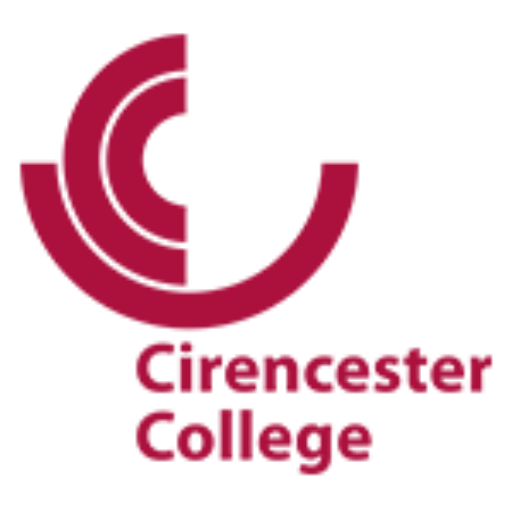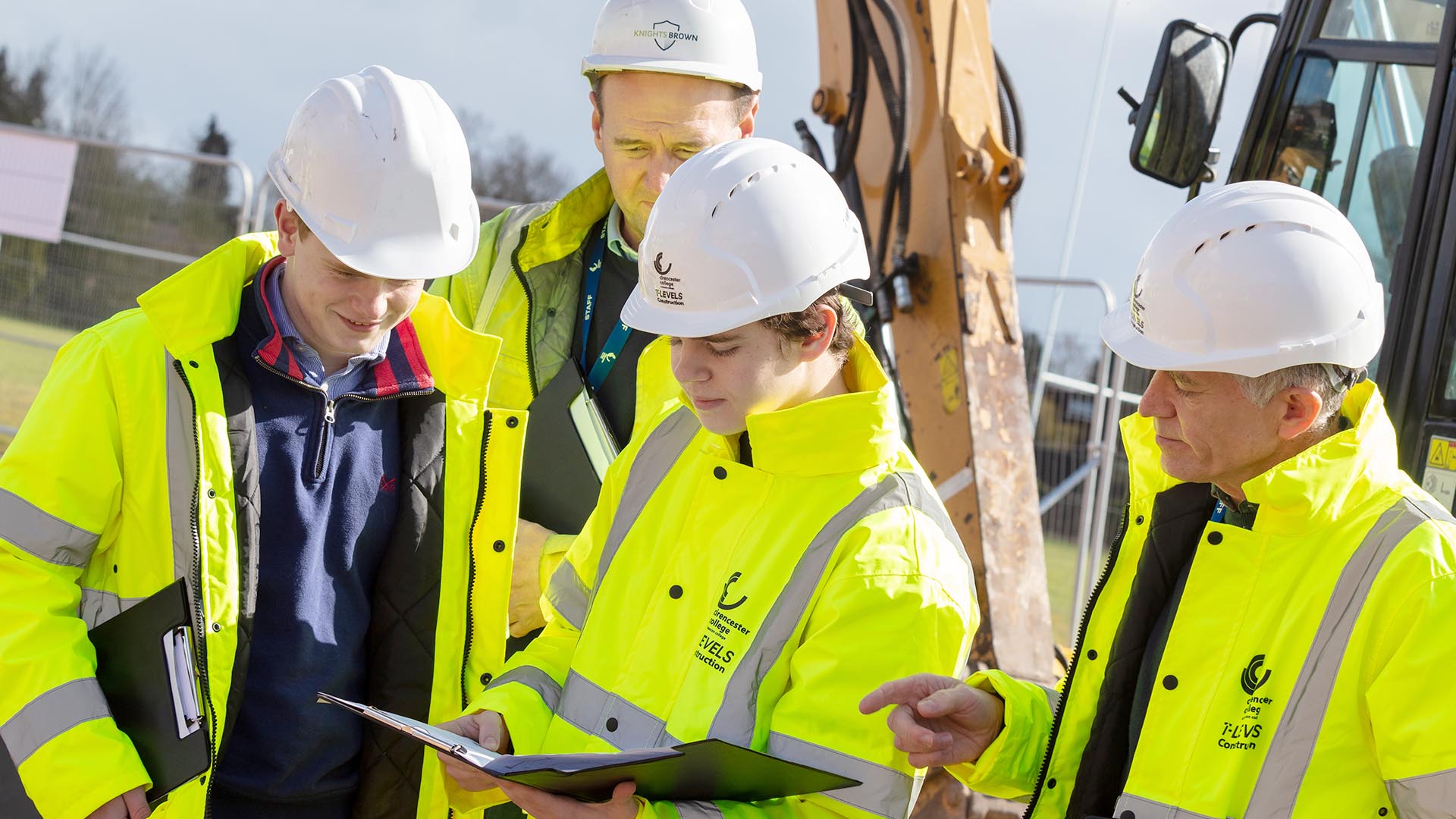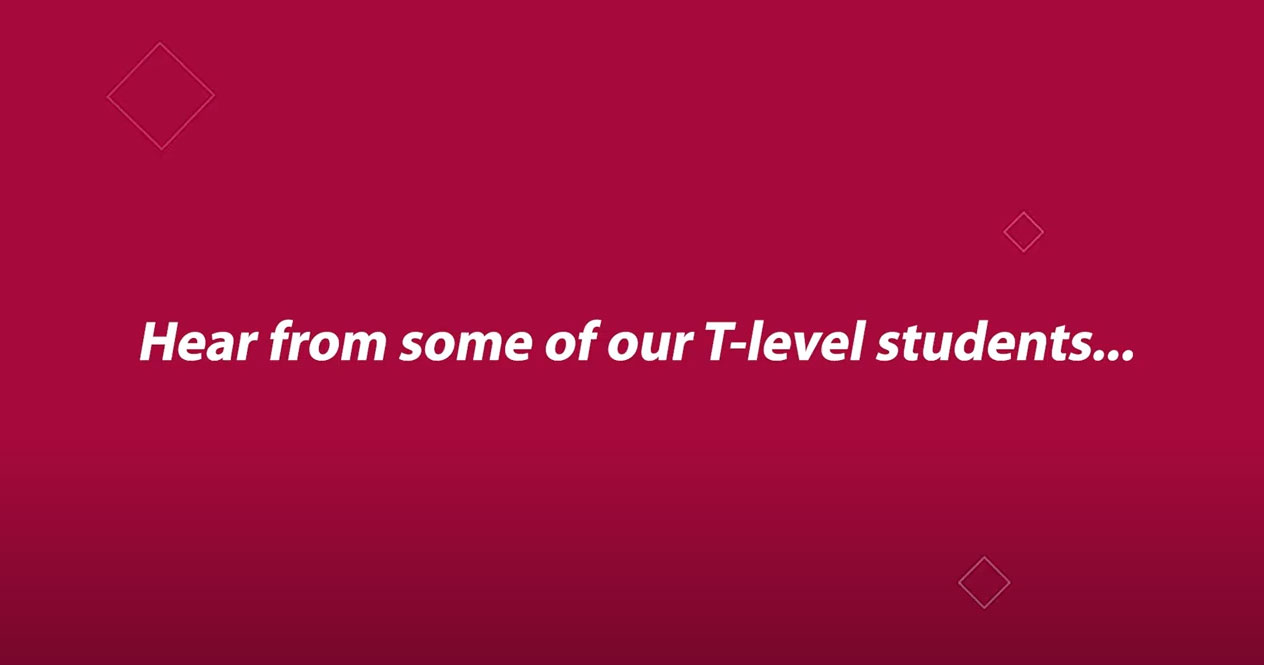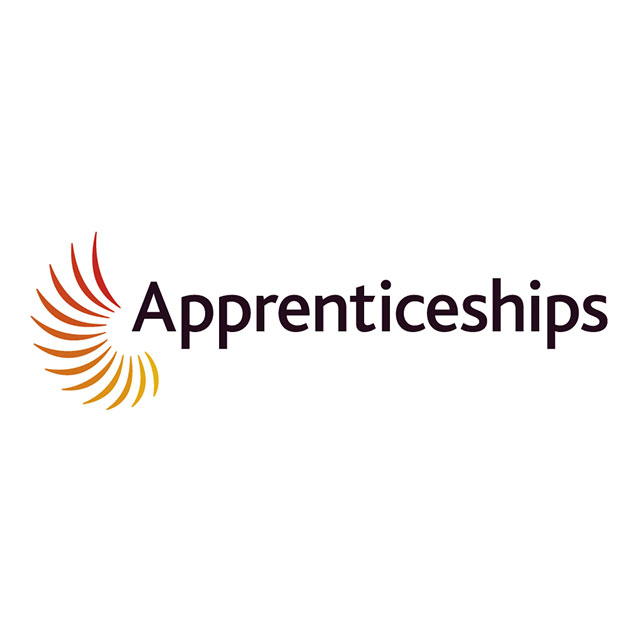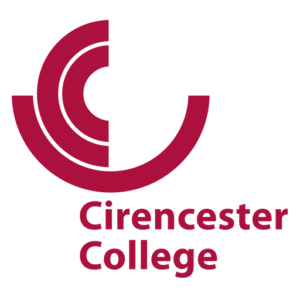DO NOT DELETE OR EDIT THIS ROW OR ITS CONTENTS

This T-level programme, developed in collaboration with industry experts, is designed to provide students with comprehensive knowledge of various aspects of construction and the built environment. Focusing on design, surveying, and planning, you will have the opportunity to choose from three possible occupational specialisms: Design and Surveying, Civil Engineering, and Building Services Design. Studying these specialisms alongside the core content, coupled with an extended industry placement, will prepare you for a future career in the construction industry or further studies in higher education.
What will I study in Design, Surveying and Planning for Construction T-levels?
The T-Level is a big subject with a large amount of theory content. It is the equivalent of doing 3 A'Levels. The range of topics we cover is very wide, and no two days in college are the same. Construction employers have designed the content. See the specification for more details. Please be aware, that this is not a practical subject; you will not be learning a practical trade.
You will study a common core for the first half term. You can then choose from 3 possible "Occupational Specialisms", which you will study alongside the core content. The 3 specialisms are:
Design and Surveying
Civil Engineering
Building Services Design
A small flavour of the areas we cover in the core:
- Maths- especially trigonometry and areas/volumes/measuring/calculus
- Science- materials, forces, heat, light and sound
- Law- planning law, landlord and tenant and contract law
- Drawing- freehand sketching, 2D CAD, 3D CAD
- Surveying- using tapes, levels and a very high-tech "total station" with GPS
- Sustainability- low carbon buildings, alternative energy and heat sources, Passivehouse
- Construction techniques, modern methods of construction and project management
- Designing buildings to a client's specification
- Digital Technology
- Relationship management
Entry Requirements
5+ GCSEs at Grade 4 or above from the core subjects, including English Language and Maths.
Students with a Grade 4 in Maths will be enrolled on Maths GCSE (Higher Tier) to help you with the course.
The course is not a practical, trade-based course, so be prepared for quite a lot of academic content. It is aimed at those who wish to pursue a career in construction at a professional level.
How will I learn?
The T-Level is very different to the average A'Level course. It can be very academically demanding at times. An aptitude for independent study is essential. Some of the activities you would do are listed below:
- Classwork with regular written assignments to do as homework
- Case studies of recent or on-going construction and civil engineering projects such as HS2
- Group work and solo/group presentations to the class and wider audiences
- Surveying practice on the college fields
- Work experience is a key part of the course and you spend at least 20% of your time with an employer
- Careers talks from construction industry professionals
- Trips to visit finished buildings or site visits to see construction taking place
How will I be assessed?
Year 1
At the end of Year 1 you will take two written examinations of 2.5 hours duration to assess your knowledge of the 14 themes.
Within the year you will be completing regular 'knowledge checks' to assess your progress and provide an indicative grade. Additionally, you will be completing Case Studies to practice your skills.
Year 2
In November of Year 2 you will take the 'Employer Set Project' to assess your skills. This is a 15 hour assessment spead over a number of weeks. It has been designed by employers to test key construction skills.
At the end of Year 2, you will be assessed on your chosen Occupational Specialism - Design and Surveying, Civil Engineering or Building Services Design. You will complete an assessed project of 30 hours duration, spread over a number of weeks.
You also need to have passed your GCSE Maths and English and have completed at least 315 hours of work placement to complete the T-Level.
Any trips?
We aim to visit as many local buildings and construction sites of interest as we can. Most trips will be fairly short and local. We are considering trips abroad in the future.
Are there any costs involved?
- You will need to supply your own drawing equipment such as A4 sketch pads, pencils, fineliners, scale rulers etc
- PPE needs to be purchased from college reprographics or can be bought elsewhere. Safety boots, hard hat and hi-viz waistcoat or jacket are needed asap for site visits and work placements. Approx total cost: £50
- A small charge is usually made to cover fuel costs on local free trips and site visits. To simplify this, and avoid asking for regular small payments, we ask for a £30 "float" from each student at the start of the year.
- Whilst we provide comprehensive safety training on the course, some employers will also ask for a CSCS safety card for work placements. This costs approximately £58 and includes an additional exam (not in college).
- A laptop suitable for CAD work would be useful but not compulsory for this course. https://www.cirencester.ac.uk/wp-content/uploads/filr/78325/LAPTOP REQUIREMENT FOR T LEVELS.pdf
- Contact the college if you are eligible for a student bursary and we will try to help with these costs.
FAQs
The T level is aimed at those who have a strong desire to work at the management level in the construction industry. It can also lead to a degree course, in say, architecture, surveying or planning. It is NOT the right type of course if you wish to learn a trade such as carpentry, bricklaying or plumbing.
The T Level carries UCAS points that can be used to go to University. E.g. Cardiff uni will accept this T level to do architecture, as long as you get a distinction (equivalent of 3 x A at A' Level)
Yes, we recommend you do. We cannot guarantee that we can find one for you, and it is better if you find something local to you. However, if you are struggling, we do have an increasing number of employers that are willing to take students. Some students work with family members, and that is fine, as long as they meet our criteria for a suitable experience.
No, the only practical work we do is using surveying instruments.
No, the T Level is the equivalent of 3 A Levels, so you would not have time to do even one A Level. For this reason, you need to be really sure it is the right choice for you.
No, but it helps if you know something about the industry as this is all you do!
Yes, of course, we are very flexible about this. You could move to a different T Level or even move to A-levels as long as you decide within a few weeks of starting. The official deadline is by half term, but for moving between T levels we would recommend changing within two weeks, because of the large amount of content that you would need to catch up on in your new course.
Awarding Body
Pearson
Available As
[168 UCAS pts. available]

Add to Application
What can I do after I have taken this course?
Available As
[168 UCAS pts. available]

Add to Application

DO NOT DELETE OR EDIT THIS ROW OR ITS CONTENTS
What the students say
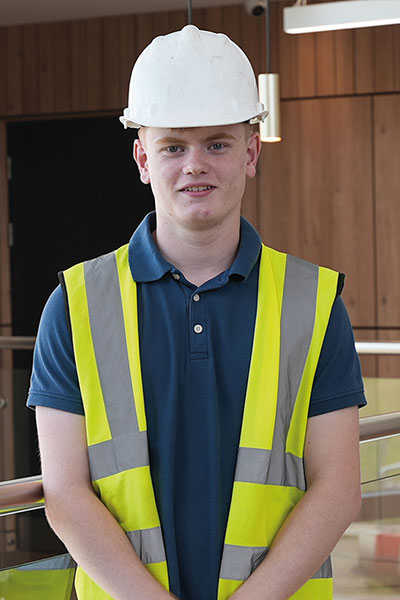
”I chose a T-level mainly because of the work placement aspect of the course. It gives you the opportunity to think about the kind of job you might want to go into afterwards when you’re still studying. I did my placement with E G Carters, a local building firm who were working on building the new College buildings. It was really good to see the theory learnt in class put into practise in the workplace, and get experience of different roles in the industry.
Archie

